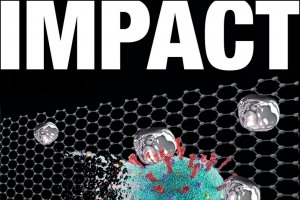PROVIDENCE, R.I. [Brown University] — As junior Andrew Steinberg stood on the beach on an 80-degree January day, gazing at the ocean, it struck him that “you could mistake the view for a resort town.” But he wasn’t on vacation — Steinberg was at the westernmost point of the United States-Mexico border, between San Diego and Tijuana, as part of a Wintersession class conducting first-hand research about the history and cultural dynamics of the border.
“I stood on the beach facing north, looking at the barrier that cut across the sand into the Pacific Ocean,” Steinberg said. “Along with my classmates, I had become aware of the similar cultures and different policies on both sides of the border. The day before, we had viewed the American side before walking across to study the border’s history and politics from another perspective.”
In Tijuana, a chance meeting with a deported U.S. veteran led Steinberg to develop a further research project to learn more about the circumstances that contribute to the deportation of foreign-born veterans and the legal issues they face in today’s immigration climate. Steinberg is one of a large cohort of Brown undergraduates doing research on social issues, seeking knowledge in service to a specific community or the wider world.
“Students are drawn to Brown because of the Open Curriculum, so that includes people who are interested in seeing the world differently,” said Betsy Shimberg, associate dean of the College and interim director of the Swearer Center for Public Service. “If you’re somebody who doesn’t want a core curriculum, then you’re somebody who wants to experience college a little differently to begin with. Therefore, you may be somebody who’s going to push against an unjust social issue or be thinking about how we move in our world differently.”
In Steinberg’s work, he found that many deported veterans are foreign-born and were brought to the United States as young children. Often, they are deported after drug convictions, but Steinberg points out that drug use is a coping mechanism of the PTSD many soldiers deal with after their service.
“For many, they were thinking they were the only deported veteran that existed and that something is wrong with them, not something wrong with the system,” said Steinberg, who is working with an organization called Deported Veterans Support House (DVSH) to provide legal advocacy for deported veterans and promote awareness of their situation.
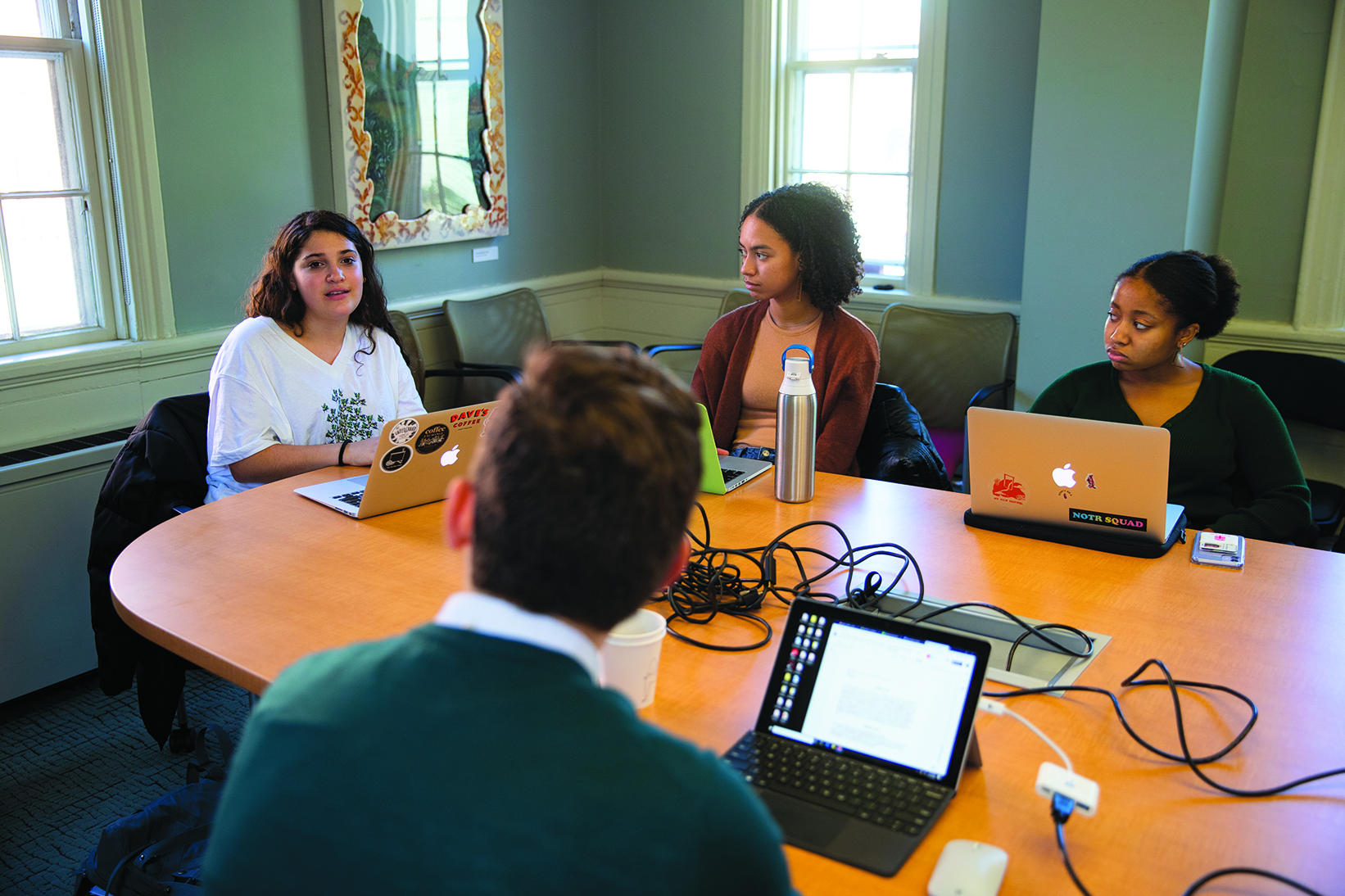
Similarly, junior Kaela Hines is working on research that shares previously untold stories, in her case from the Atlantic slave trade between the 16th and 19th centuries, as part of a project for Brown’s Center for the Study of Slavery and Justice (CSSJ). An English nonfiction concentrator with aspirations in journalism and documentary filmmaking, Hines is delving into primary source material about enslaved people, enslavers, and the business practices that were enabled by the Atlantic slave trade. Her research will be part of an upcoming documentary, which, Hines said, is not only giving her practical skills for her future career, but is also especially timely at this moment in American history, as the anti-Black racism and racial injustice movements grow.
“When the documentary does come out, it will be such a good source of education,” Hines said. “A lot of people nowadays are focused on unlearning biases and unlearning what some schools have taught us or what textbooks may have gotten wrong. I think it is really important to have films, because they are digestible and easy to access. They are a means of education and of showing how deep-rooted the slave trade was and is in our society. It was hundreds of years ago, but it has morphed into present-day systems such as mass incarceration.”
Anthony Bogues, the director of the CSSJ, said that the center creates the possibilities for undergraduate students to do this kind of work. He notes that working with Brown undergraduates is an “intellectual joy,” and echoes Hines in her assessment that, through research, the students are building skills for the future.
“To me, it’s the kind of intellectual curiosity that the Brown undergraduate students bring which makes projects very rich and, simultaneously, that engagement gives them a certain set of organizational skills that are important to make ideas work in the world,” Bogues said. “Brown undergraduates bring a rare curiosity and sophistication and therefore put questions on the table that might not have been there otherwise.”
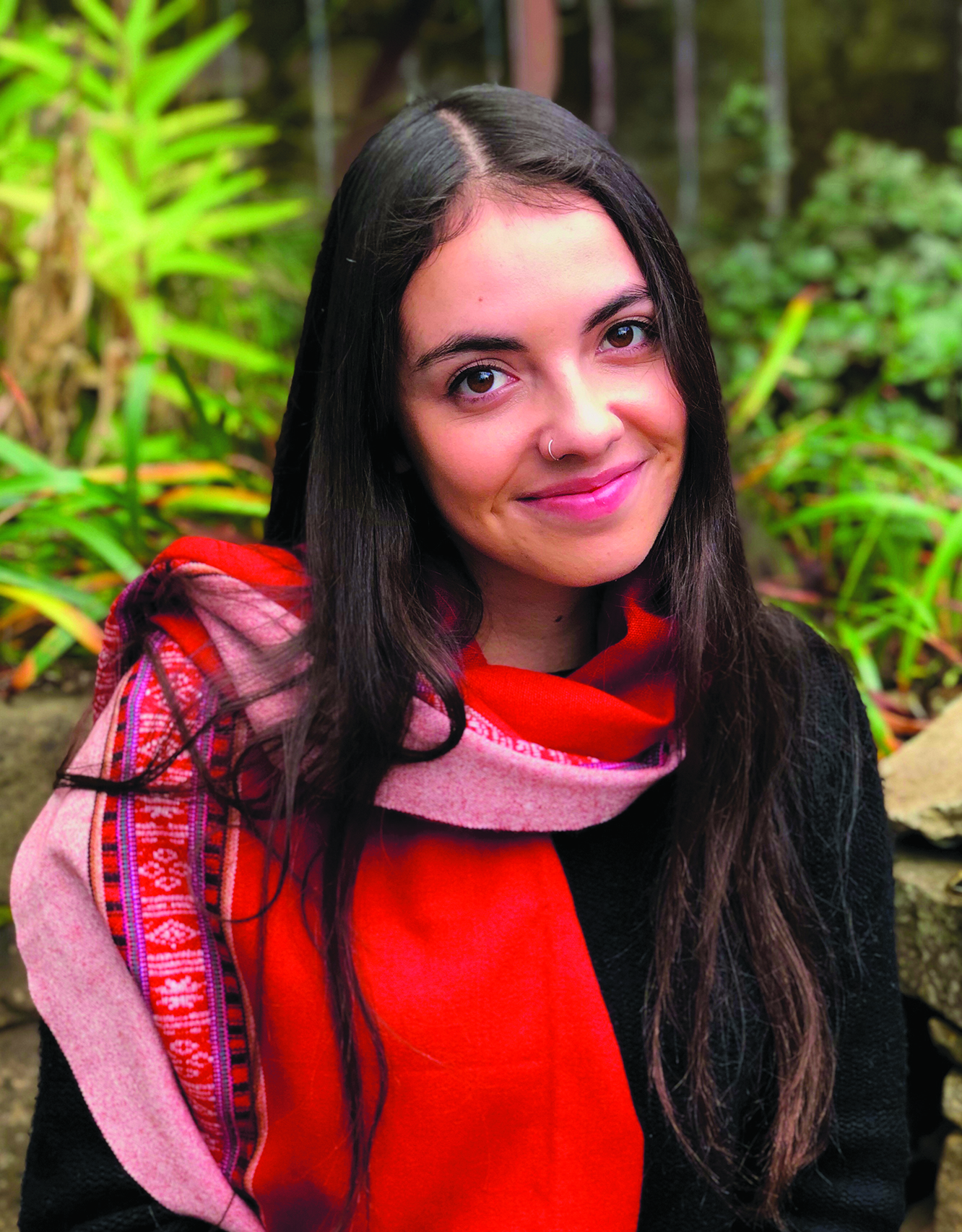
Take Class of 2020 graduate Camila Pelsinger, who wants to amplify a community approach to dealing with gender-based violence, resulting from her Brown thesis work about a restorative justice program in New Zealand that is the first of its kind. Pelsinger, winner of a 2020 Rhodes scholarship, encountered the restorative justice approach when she was a coordinator with Brown’s Sexual Assault Peer Education program and a student leader in the campus-wide effort to better prevent and respond to issues of sexual assault and misconduct. After that experience, she decided to focus her thesis research on restorative justice.
Her findings indicate that the criminal legal system has failed to address pervasive sexual violence, pointing to staggeringly low reporting rates, low conviction rates, and the victim-blaming nature of criminal court proceedings that can further traumatize survivors. Moreover, she notes that even for the small percentage of cases that do result in convictions, prisons themselves are sites of violence and have not been effective in interrupting the cycle of gendered violence, which is rooted in hierarchies of power and control. Instead, a restorative justice process is tailored to address the specific needs of a survivor and sometimes culminates in a conference where survivors express the impact of the harm on their lives, and perpetrators, and after a lengthy accountability process, take responsibility for the harm they have caused.
“Depending on the needs of the victim-survivor, the outcomes of a restorative justice process might include agreements for the offender to attend clinical treatment, pay restitution, and avoid certain spaces,” said Pelsinger, who hopes her work can lead to similar programs in the United States.
A classmate of Pelsinger, Class of 2020 graduate Nupur Bahl, is recommending new approaches of her own, in end-of-life care. Bahl’s thesis studied a therapeutic practice in end-of-life care, called life review, that allows patients to talk through the story of their life, often with a hospice care provider or chaplain, to gain comfort and meaning. While most published literature on the topic suggests a strict methodology is necessary for these conversations, there is lack of agreement on just what this methodology should be. Bahl’s interviews with care professionals conducting life review found the exact opposite; no matter the methodology, the process was viewed as beneficial to both the patient and their loved ones.
Bahl, a health and human biology concentrator, sought out Terrie Fox Wetle, the inaugural dean of Brown’s School of Public Health and now professor of health services, policy, and practice, as her advisor on the project because of Wetle’s expertise in qualitative public health research and connections with hospice care facilities. Under Wetle’s guidance, Bahl put in hours of work outside her classes to learn the interview and analytic skills necessary to collect data from care providers in the field.
“Brown students put in a lot of effort and there’s a kind of independence, a sense of, ‘I can do this,’” Wetle said. “And it was like that with Nupur. From the beginning, I tried to convince her that the project was overly ambitious, but she did it. I would have been proud to have had the finished product submitted as a master’s thesis.”
Bahl won Brown’s George W. Hagy Prize in Human Biology for her work and is submitting it for publication. After graduation, she started a job as a research assistant in the division of population sciences at Dana Farber Cancer Institute in Boston. “You come to Brown and there’s this expectation that you’re going to contribute,” she said. “You feel empowered to move the University forward, to be an important and very real part of what the University is doing all the time.”
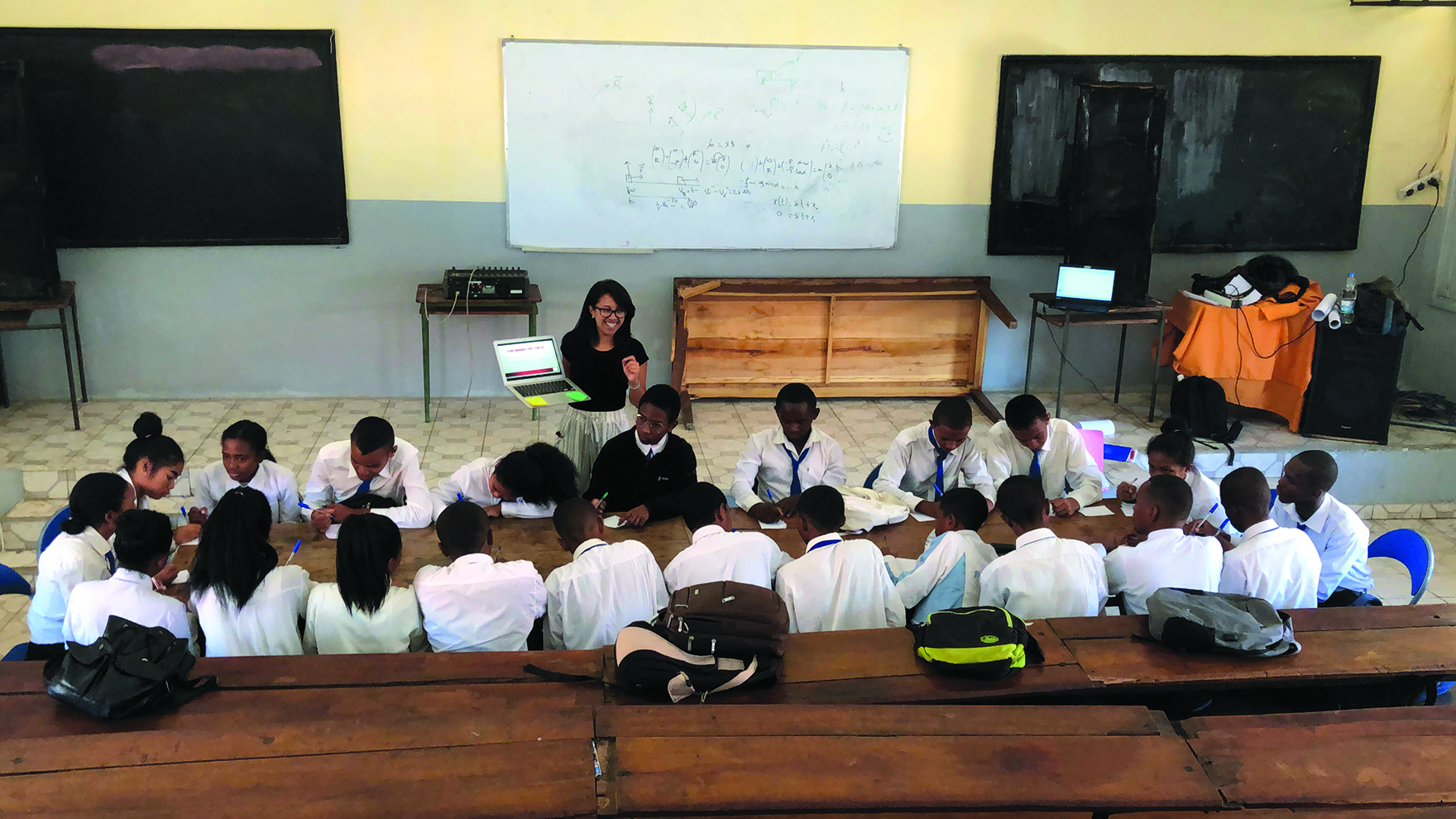
Being a part of the work of the University means making an impact both in Rhode Island and around the globe.
Internationally, junior Francesca Raoelison is using her research at Brown to help in her native Madagascar, where she’s found that emotional abuse is common. She created Omena, a nonprofit that teaches school-aged Malagasy children and adolescents how to recognize emotional abuse in their relationships through in-school workshops. Raoelison created workshops and ran a pilot program that reached 350 young people, with immediate positive benefits: 90% of participants said they had no prior knowledge of emotional abuse before the workshop.
Focusing locally, Class of 2016 graduate Rachel Black centered her undergraduate thesis work on criminal justice reform in Rhode Island. Her research showed that a 2008 Rhode Island law passed to ensure that low-income defendants were not jailed for inability to pay court fees was not, in fact, being properly enforced. Black found that defendants were ending up in jail at the same rates as the year prior to the law’s passing. Her research was used to craft a new bill to prevent this from happening, and she testified in front of the Rhode Island House Judiciary Committee in support of the bill, which is still under review.
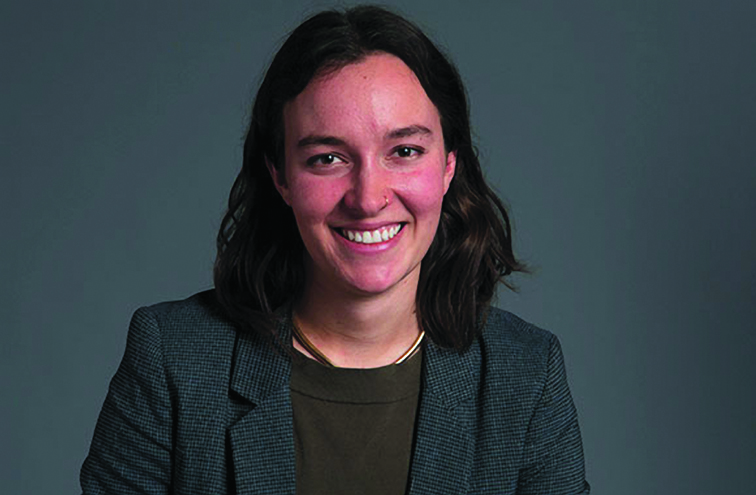
“I was able to step in and use my expertise and my time to answer a question that someone in the community in criminal justice reform in Rhode Island wanted answered,” said Black, who now works in business development at Education Resource Strategies, a nonprofit to aid the efficient and equitable use of education resources. Now, as she works with schools across theUnited States to assess how they use their resources, she said she uses the technical research skills she learned at Brown every day, as well as the practice she had building relationships in the public sector.
Black became interested in criminal justice reform after taking a course on the anthropology of homelessness. Undergraduates often cite as inspiration either an experience in the classroom or a co-curricular activity.
In collaboration with faculty mentors and practitioners, students are able to create new knowledge, according to Oludurotimi Adetunji, associate dean of the College for undergraduate research and inclusive science. “The training that they are getting now will provide them with the drive they need to continue this work beyond their time at Brown,” he said.
